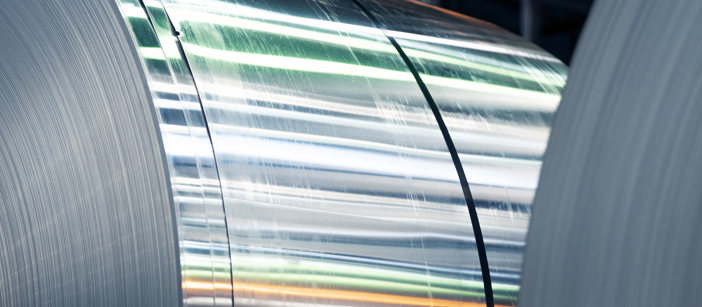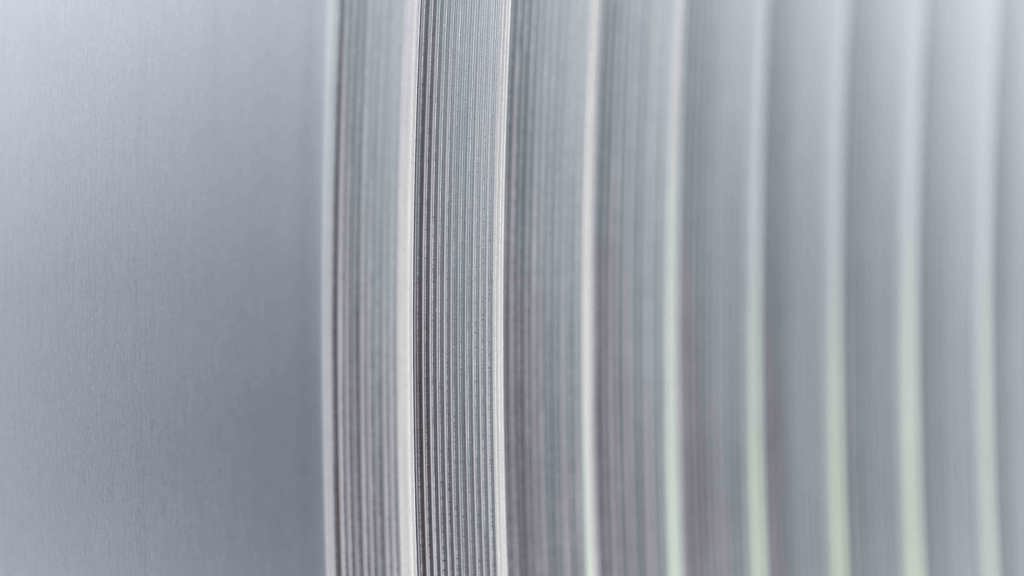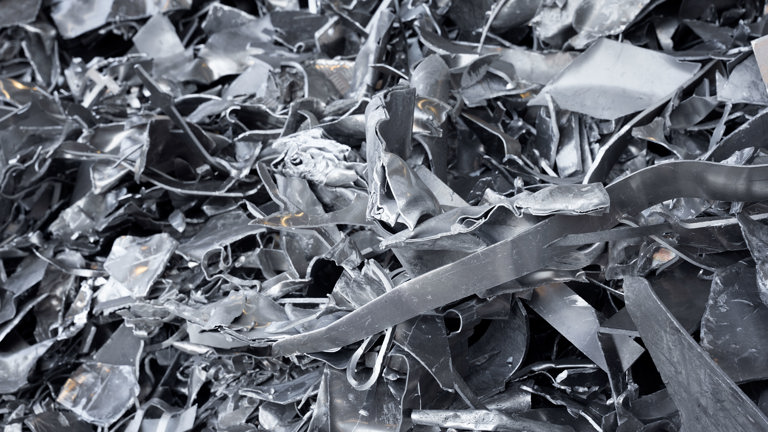
Aluminium in everyday life – a reliable companion
As one of the youngest metals used in human history, aluminium is equally one of the most fascinating materials of our time. Although it is the most common metal in the earth's crust, it wasn’t until the 19th century that it was first produced in its pure form. Today, aluminium is deeply embedded in everyday life, to the point we cannot imagine life without it. Whether in packaging, in the automotive sector, in smartphone manufacturing, or in building technology: it accompanies us throughout the day, mostly unnoticed, but always with tangible benefits.

Where do we encounter aluminium in everyday life?
As a normal day begins, maybe the first thing you reach for is the roof window. The window cladding is made of aluminium – simple, functional, weatherproof. This is one of many typical examples of aluminium in everyday life that usually go unnoticed. As for another: a capsule is inserted into the coffee machine in the kitchen that now starts running. Here too, aluminium plays a crucial role in the housing of the machine – but also in the packaging of the coffee. Casting a quick look at your smartphone, you’ll find its housing is also made from aluminium: robust, slim, pleasantly cool.
The material expands its presence into cars and trains as well. Aluminium can be found in hoods, doors, battery cell housings, or in the floors of streetcars. This metal is used wherever weight has to be reduced without forfeiting stability. In these cases, the material choice is based on aluminium’s natural durability and functionality under high stress.
Arriving at your office, the aluminium housing of your laptop ensures that heat does not build up and the technology functions smoothly. Even at lunch, aluminium comes into its own again: as a heat-resistant microwave meal tray. The packaging reliably protects food, is hygienic, and can be fully recycled.
Later, while shopping, you’ll encounter aluminium in different forms: as beverage cans or as impermeable cardboard packaging. The barrier effect, low weight, and recyclability make aluminium a favored choice in the packaging industry for good reason.
Later, in the evening, you might cook a delicious dish in your aluminium pan. In this use case, aluminium allows for even heating and thus more efficient cooking.
And even the last step of the day – closing the roller shutter – shows that the aluminium solutions in everyday life provide stability and security.
What feels like a simple routine, proves the diversity of aluminium usage in everyday life. Whether as a material in technology, mobility, household, or packaging: aluminium is omnipresent.
Fields of application Where can you find aluminium?
Hardly any other room has us confront aluminium in our everyday lives as often as the kitchen. Many of our frequently used utensils are made entirely or partially from this light metal. Its heat resistance, malleability, and corrosion resistance make aluminium the first choice in many kitchen applications.
Typical examples of aluminium kitchen utensils in everyday life include:
- Pots, pans, and frying pans made of solid aluminium or with an aluminium core
- Aluminium foil for keeping food fresh or for cooking and grilling
- Tins for vegetables, soups, or fish
- Coffee machines and capsules
Aluminium also scores high when it comes to food storage and packaging. It reliably protects the contents from oxygen, light, moisture, and foreign aromas, thus preserving taste, freshness, and nutrients. In addition to food, cosmetics and pharmaceuticals can therefore also be stored in tried and tested aluminium packaging.
Typical aluminium packaging solutions:
- Beverage cans, tubes, bottle caps
- Yoghurt lids, blister packs for medicines
- Household foil, grill trays, meal trays
- Aerosol cans for deodorant sprays
Aluminium has long been a standard material in modern devices such as smartphones, tablets, and laptops. The housing creates mechanical stability with a low weight and offers a particularly high-quality feel. At the same time, the metal supports heat dissipation and thus contributes to the longer service life of the electronics. We also encounter aluminium in everyday household appliances, for example in cladding, heat exchangers, or components that need to be robust and durable.
Aluminium use in everyday life and in technology:
- Housings for smartphones, notebooks, and televisions
- Cooling fins and memory plates in IT systems
- Antennae, cable shielding, switch cabinets
- Busbars, transformers
In leisure products such as bicycles, sports equipment, camping accessories, and climbing equipment, the material has proven itself thanks to its high strength and reliability. A look outside the box also shows how aluminium performs in everyday life with its advantages for interior design where it proves functional in modern furniture designs. It lends chairs, shelves, lamps, and home accessories a clear, timeless aesthetic. Thanks to its diverse surface treatments – lacquered, brushed or anodized – the material can be harmoniously integrated into a wide variety of styles.
Examples of aluminium in everyday life in leisure and design:
- Picture frames, furniture handles, designer lamps
- Ladders, garden chairs, camping tables
- Bicycle frames, rims, climbing hooks
- Soccer goals, outdoor or trekking accessories
In the construction industry, aluminium impresses with its durability, stability, and great design freedom. Façade cladding, windows, doors, or roofing made of aluminium show excellent performance due to their high resistance to weathering. Additionally, their clear design options blend in seamlessly with modern architecture. Thanks to its corrosion resistance, the material remains low maintenance even in the long term. This is an advantage that is particularly important for public buildings and infrastructure projects. Aluminium is also suited for sustainable construction: It is recyclable, non-combustible, and efficient in photovoltaic systems or heat exchangers.
Exemplary uses in construction:
- Window frames, doors, façades
- Conservatories, shower cubicles
- Sun protection systems, roof and wall elements
- Photovoltaic panels, heat pumps, and air conditioning systems
As a key material in the mobility sector, aluminium is used for vehicles depending on lightweight construction and low energy consumption – whether when accelerating, braking, or in continuous operation. As such, aluminium components are found in cars, commercial vehicles, trains, and aircraft. The resulting increase in efficiency has a direct impact on range, emissions, and operating costs. In the field of electromobility, aluminium is not only in demand for car bodies but also in battery systems, electric motors, and in heat and cooling management. The combination of high formability, corrosion resistance, and low weight makes the material suitable for modern mobility concepts that focus on sustainability and performance.
Aluminium is used in:
- Cars: bodies, chassis, engine blocks, doors, rims
- Bicycles, motorcycles, e-bikes
- Rail vehicles and bus bodies
- Aircraft and ships
- Commercial vehicles, floodgates
Get in touch with us We are your partner for aluminium in everyday life
Aluminium is ideal for a variety of applications in our everyday life. We support you with your projects in any field of everyday use of this versatile material. Take advantage of our expertise, our sustainable solutions and the opportunity to realise individual recycling concepts. Please contact us using the contact form.
Why aluminium is convincing in everyday life
Aluminium is characterized by properties such as versatility, lightness, and durability. So, it's no wonder that aluminium accompanies us often in our everyday lives.
Lightweight construction and energy efficiency:
With a density of only around 2.7 g/cm³, aluminium is significantly lighter than many other metals. This property is used in vehicle construction to reduce the overall weight of cars, trains, and airplanes. A lower vehicle weight leads to lower fuel consumption and therefore to a reduction in CO2 emissions. In the automotive industry, for example, body parts are made of aluminium to increase the efficiency and performance of vehicles.
Corrosion resistance and durability:
Aluminium forms a natural oxide layer on its surface, protecting it from corrosion. This results in its durability and low maintenance, making it an ideal material for use in construction and architecture. Window frames, façade cladding, and roofs made of aluminium are therefore both aesthetically pleasing and resistant to weather effects.
Versatility in application:
The combination of lightness, strength, and malleability ensures the use of aluminium in a wide range of products. From packaging such as beverage cans, which protect the contents from light and oxygen thanks to their barrier properties, to electronic devices in which aluminium cases ensure efficient heat dissipation. Aluminium is also used in medicine, for example in blister packs for tablets.
Aluminium in everyday life from Speira – in mobility, construction, packaging, and technology
Aluminium as part of modern mobility
The demands on mobility have changed as efficiency, safety, and sustainability form today’s focus. Aluminium provides these required properties, strengthening its application in components such as body parts, battery modules, and drive systems. At Speira, we support this change with tailor-made pre-materials that are lightweight, high-performance, and fully recyclable.
Packaging with responsibility
Aluminium protects food, medicines, and cosmetic products from light, oxygen, and moisture. Additionally, the material is tasteless and combines functionality with resource conservation, making it the preferred choice when quality and sustainability are not mutually exclusive. Its full potential is particularly evident in the beverage can sector.
Sustainable construction, functional design
The urban space is growing and shaping the demands on materials to be more durable, versatile, and ecologically convincing. In façade construction, window and door systems and architectural details, aluminium combines functionality with real design freedom. It can be effortlessly rolled into large, resilient formats that still remain lightweight. At Speira, we supply high-quality aluminium solutions for demanding construction projects and support architects, planners, and fabricators with rolled aluminium that intelligently combines design freedom, energy efficiency, and durability.
Technology needs materials with added value
In the electronics industry, every gram and every millimeter counts. Aluminium protects sensitive components, dissipates heat, and ensures structural integrity, whether in smartphones, battery systems, or stationary energy storage systems. Particularly in electromobility, precisely matched materials that can withstand both mechanical stress and thermal requirements are essential. Speira develops such solutions: high-performance aluminium alloys that are designed for a long service life, efficiency, and sustainability – for applications that make our technological future tangible.

Aluminium in everyday life – indispensable and sustainable
Choosing aluminium in everyday life means choosing efficiency, durability, and climate protection. It's hard to believe but 75% of the aluminium ever produced is still in use today. Especially in times of scarce resources and increasing environmental requirements, aluminium is a crucial building block for a sustainable future.
Contact us Make everyday extraordinary with aluminium
Light, durable, and endlessly recyclable, aluminium powers innovation across countless industries and everyday products. No matter what you're designing for performance, sustainability, or large-scale production – our experts are here to support you from idea to final product. Reach out using the contact form and let us explore your possibilities.





